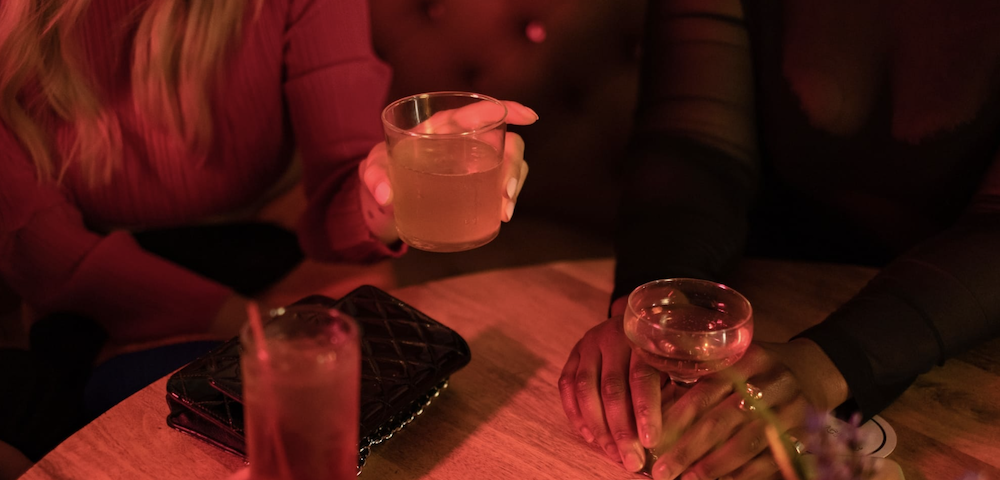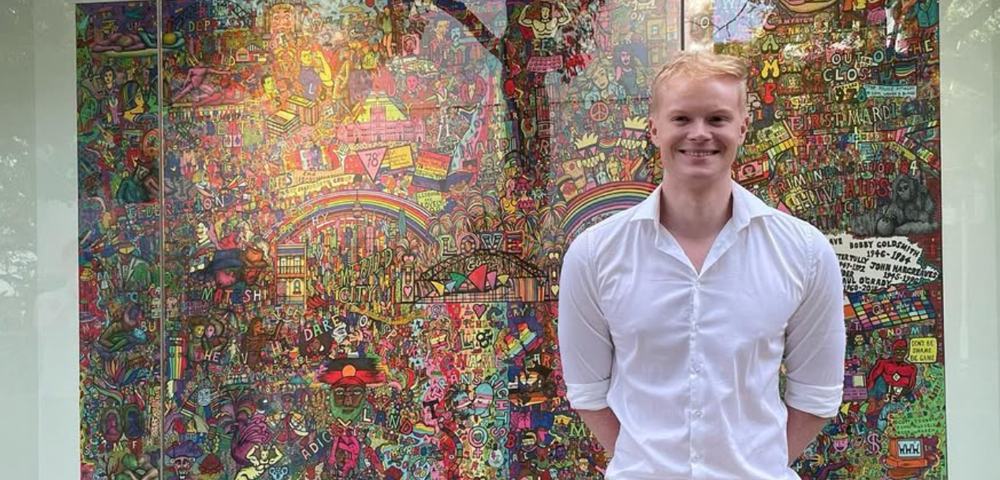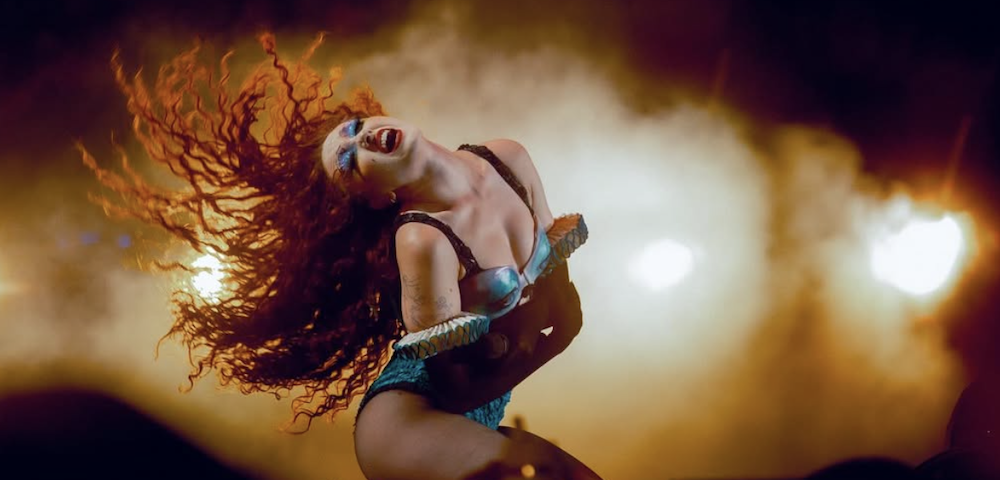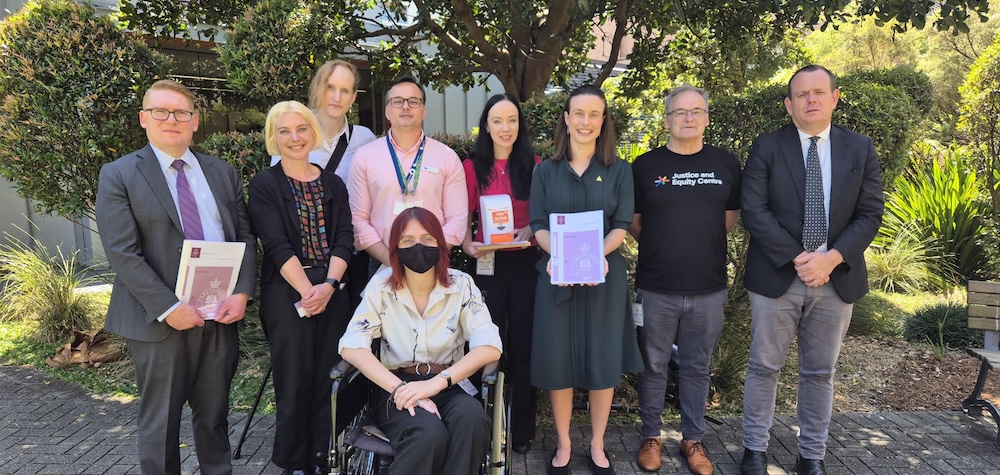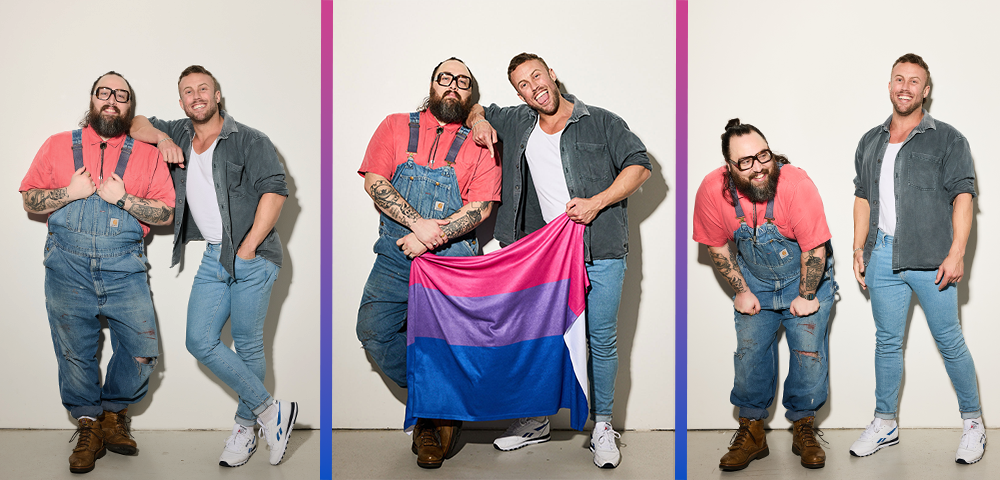
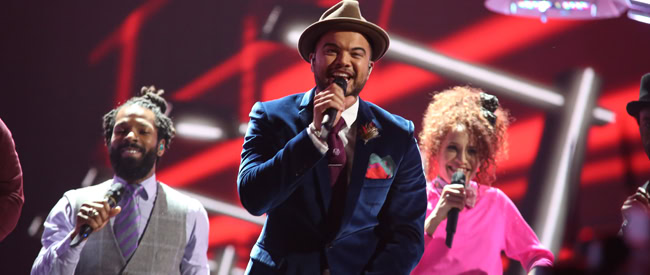
IT could have potentially been the greatest night of this Eurovision fanatic’s life: the wind machines were set to eleven and costumes were ready to be revealed.
Then Sweden had to go and win.
For a year that was loaded for bear with ballads — and some really amazing ones at that — it was refreshing that Måns Zelmerlöw’s upbeat Heroes won. It’s just a shame it was so perfectly bland.
In this little article yours truly will take you on a trip down Eurovision memory lane, and share my experience of the almost glitterless Eurovision.
Especially for a gay journalist covering something as camp as Eurovision, there was a very obvious white elephant (or red bear, to be more accurate) trampling around Vienna, a throbbing sore thumb that stuck out so much it had broadcasters clamouring for “anti-booing” technology for the grand final.
For a while there was genuine tension around the Wiener Stadhalle that made the air so thick you could have cut it with a fabulous flourish of a pride flag, as Russia looked set to win.
There has been some genuinely thought-provoking discussion about giving the country — home to infamous laws that ban so-called “gay propaganda” — the keys to hosting what is probably the world’s biggest LGBTI party.
It would have thrown a Russian Blue among the Kremlin pigeons to say the very least, forcing the country to welcome thousands of LGBTI fans and press.
What would have happened? Would the blood of LGBTI people who have been bashed continue to run in the streets of Moscow and St Petersburg? Would foreigners have been given a free pass? Hell, would even one pride flag be allowed to fly high?
 From all reports and from my own observations, Russia’s 2015 Eurovision contestant Polina Gagarina is not homophobic. In fact, I believe she spoke out during the competition in support of the LGBTI community as much as she could without running afoul of Putin and his homophobic henchmen.
From all reports and from my own observations, Russia’s 2015 Eurovision contestant Polina Gagarina is not homophobic. In fact, I believe she spoke out during the competition in support of the LGBTI community as much as she could without running afoul of Putin and his homophobic henchmen.
Gagarina has also defended a video posted to her social media of a heart-warming encounter with 2014 Eurovision winner and bearded drag queen Conchita Wurst. In the post, the two performers embraced and kissed, looking like someone had broken out the celebratory vodka.
She was chastised by Russia’s most infamous homophobe (and pure hell-spawn), politician Vitaly Milonov, who said she had “betrayed” Russia, and called Wurst a “mentally sick pervert”.
In what could be seen as a direct response to Milonov, Gagarina defended Wurst on social media, writing “why so angry? It is only a stage persona and it works. She performs excellently and is very cultured. Мind what you write”.
It’s clear that Gagarina knows she’s restricted by Putin and his straight-pride brigade, but has said what she can legally say, and for that I believe she deserves our respect.
However, a win for Gagarina and, more largely and symbolically, Russia, would have been a form of validation for a regime that condones the persecution of Russian LGBTI people.
And let’s not forget — to get back to Eurovision — Russia was almost instantaneous in its condemnation of the contest and the European Broadcasting Union for Wurst’s win last year. Heck, the country even threatened to pull out from the contest and revive its Soviet-era “Intervision” contest.
Spoiler alert: Intervision failed to materialise. Russia came back to Eurovision with its tail between its legs after preaching fire and brimstone for Europe, supporting comments Australia’s Eurovision doyenne Julia Zemiro told me earlier this year: “I think if Russia’s not there, we will go ‘fine, it’s your right to take a year off’ but if they are there, then we can say ‘well you’re just full of hot air, sound and fury signifying nothing because you said you wouldn’t compete but here you are’.”
So, just because Gagarina submits a genuinely amazing song (trust me, I absolutely adored it) and should be applauded for her efforts, in my humble opinion there’s no way in the hell apparently populated with homosexuals (if Milonov is to be believed) that Russia should have been validated by a win. No way.
There are cries in the Eurovision blogosphere this year’s contest should have risen above the politics that plague Europe, with hosts during the final broadcast even pleading with the audibly upset crowd to respect the music “no matter who governs” certain countries.
This was almost instantly followed by ex-Soviet, Balkan and Mediterranean blocks voting predictably, almost perfectly.
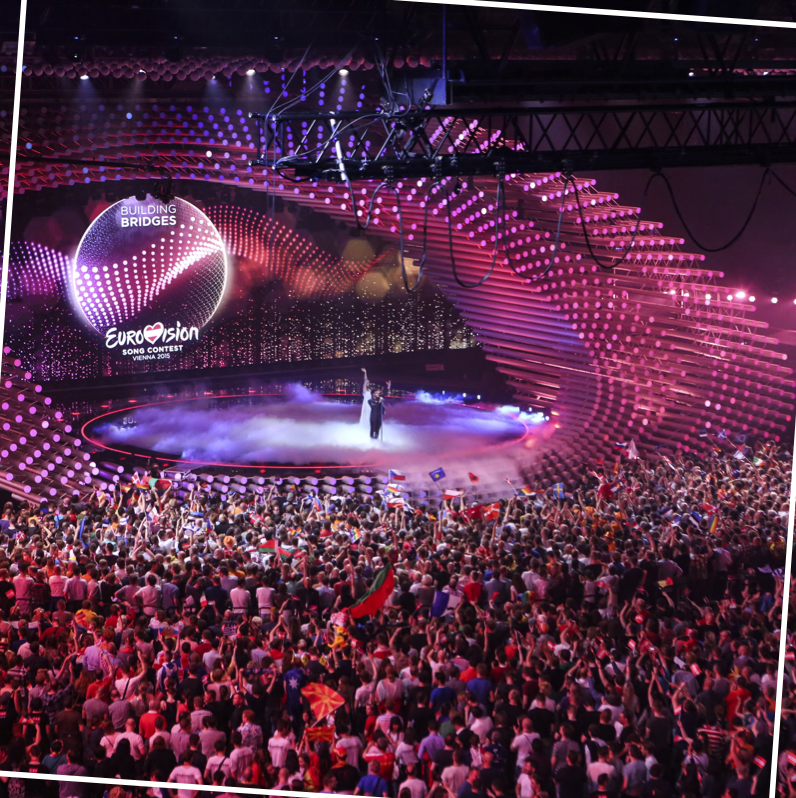
Ranting aside, the greatest upset of this year’s contest was not Gagarina’s loss but rather a song so uninteresting, so beige, so missing an “edge” and something so characterless took home the title.
There were so many surprises this year, which from the outset looked like a very sober competition with only a few countries bringing the camp and fun.
Serbia and Belgium were Eurovision 2015’s greatest breakout surprises, as wereLatvia’s stage-stealing vocals and performance.
There were rumblings Serbia’s song Beauty Never Lies would become an instant gay pride anthem. It proved to be a pretty safe bet as the arena soon became blanketed in rainbow flags when Bojana Stamenov belted out her message of self-acceptance and love.
Belgium’s Loïc Nottet also had an interesting sound to him from the very beginning. Rhythm Inside had instant appeal with a deep, alternative beat echoing sounds of Lorde. It came close to perhaps sounding a little too similar to the world’s favourite Kiwi. However, any doubts (of mine at least) were completely obliterated during the competition.
My god, that song on stage. Those vocals. Those midriffs on the back-up singers (who knew that was back?). For me it was the most memorable live performance of the competition.
I guess I should talk about Guy Sebastian at some point, after all he was reason I bought my first ever-Australian flag. Such was the sense of patriotism our long-awaited involvement in Eurovision spurred within me.
In an absolutely impeccable and astonishing way Sebastian stamped an imprint of those cute, fuzzy little koalas that you attach to pens onto the hearts of Europeans everywhere.
Despite comments from backstage during the competition that other artists were “shitting themselves” about Sebastian and his song, a top five position in the final was always the far more likely outcome. And guess what? He did it and we should be fucking proud.
So, dear reader, what did I take home from my first time at the world’s greatest celebration of glitz, kitsch, heart-wrenching displays of impossible vocals, and at times complete and utter what-the-fuckery?
The press centre is essentially a gay club, complete with music pumping through from live rehearsals but sadly lacking the booze (but abundant with free pretzels and chocolate wafers— my god, the wafers).
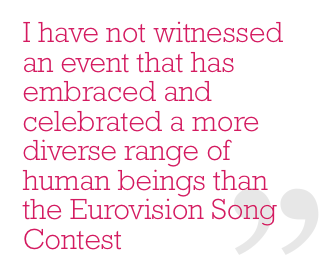 Unless meat on bread and schnitzel is your only thing culinary-wise, the Austrians are best left to doing desserts (my god, the strudels).
Unless meat on bread and schnitzel is your only thing culinary-wise, the Austrians are best left to doing desserts (my god, the strudels).
Molly Sterling is simply the best. Please keep an eye out for this Irish sweetheart and where her career takes her. Same goes for Azerbaijan’s Elnur Huseynov. Australian tours soon, guys? Yes? Good.
And lastly, I learned that I want to do all the bat-shit craziness all over again next year. Even the 1am press conferences, and maybe even the slab of meat on bread.
I can honestly say I have not witnessed an event that has embraced and celebrated a more diverse range of human beings than the Eurovision Song Contest. From Israeli sex-store owners to members of Austrian parliament who manage communications for Conchita Wurst, and from French photographers who seemed to only possess the tightest of t-shirts and shorts to an alternative radio DJ who enjoyed the sight of men in leather more than I thought possible.
Eurovision simply had it all in a wondrous and glittering display of inclusivity, support, love and a sense that through music, the world can be a better place.
Bring on Sweden in 2016: the meatballs, the lutfisk and hopefully a stage in Stockholm that resembles a giant IKEA.
Just bring back a bit more camp and fun next year, okay Europe?
_____________________
**This was first published in the July edition of the Star Observer, which is available to read in digital flip-book format. To obtain a physical copy, click here to find out where you can grab one in Melbourne, Sydney, Brisbane, Adelaide, Canberra and select regional/coastal areas.





